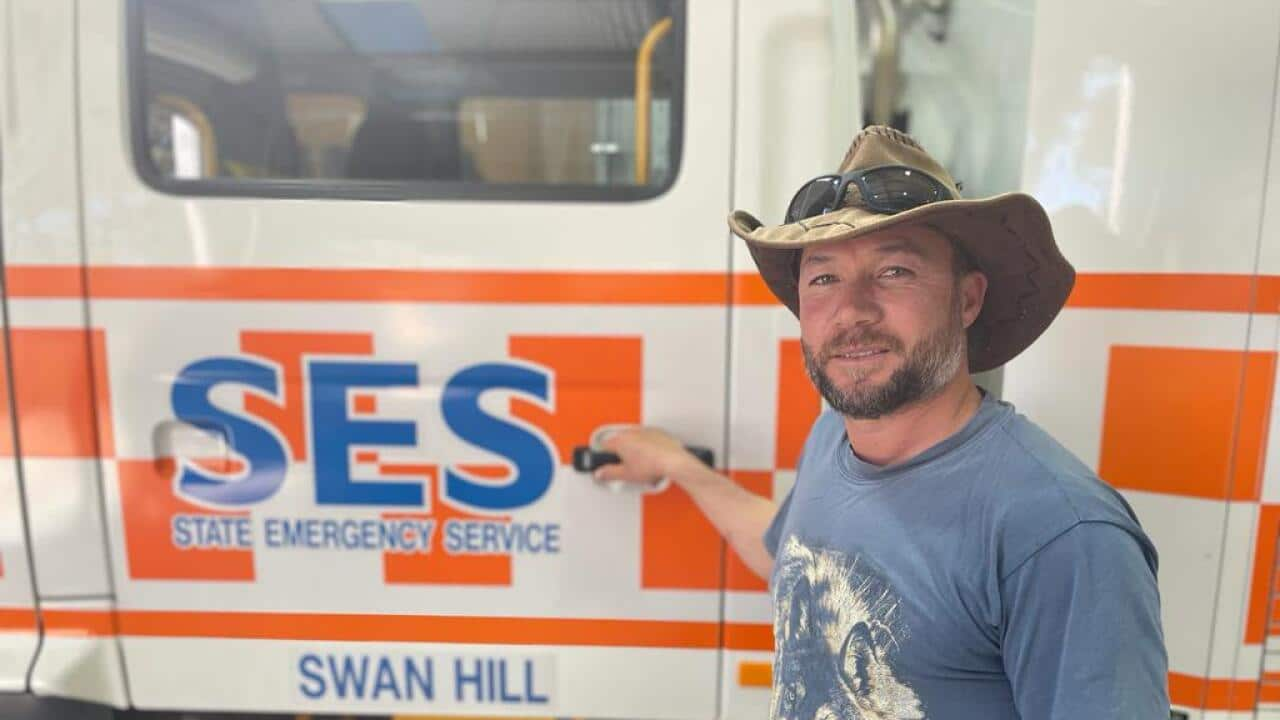At just 17 years old, Zainab Razay has fulfilled one of her father's wildest dreams.
Zainab recently received an ATAR of 99.45 (from a possible 99.95), allowing her to study a Bachelor of Science and then a Doctor of Dental Medicine course at the University of Sydney.
And the best part wasn't learning of her high ranking, but telling her parents.
"I think in the beginning, I was kind of studying for them to see them happy, to see the smiles on their faces," she said.
"But then eventually, when I grew up, I started studying for myself knowing that education is really important and so is gaining knowledge and all of that … that's when I started enjoying learning."

Mohammed Ibrahim Razay left Afghanistan for a better life for his family Source: Supplied / Supplied
He said that, based on her potential, he was expecting a number in that ballpark. But his optimism didn't diminish his excitement upon learning of her achievement.
"I was beyond happy. You know, you work hard on your children, and they achieve great things. This is what parents dream about," he said.
A long way from Afghanistan
Mohammed is a shopkeeper in Sydney's southwest who never had the opportunity to study past high school.
Living in a country like Afghanistan, education was a privilege many didn't have.
This privilege was even further out of reach for the Hazara religious minority, a community to which the Razay family belongs.
Long-term religious and land rights tensions in Afghanistan have translated into discrimination against Hazaras.
For Mohammed, fighting for his life took precedence over his education.
When the Taliban first took over in the late 1990s, Mohammed, along with many others, made the treacherous boat journey to Australia.
The newly married 26-year-old travelled for two months before he reached Australian soil.
He chose to risk his life for the slight chance of a better one — not just for himself but, more importantly, for his future family.
We were left with no choice but to flee a country where we had no rightsMohammed Razay
After arriving in Australia in 1999 he was immediately placed in Port Hedland detention centre in Western Australia where he spent six months before being released in 2000 on a temporary visa.
He wasn't reunited with his wife until 2005.
"Our futures in Afghanistan were dark. We were left with no choice but to flee a country where we had no rights," he said.
"Nothing came of us and our generation, so we had to go to a place where our next generation would at least be able to accomplish something," he said.
This sacrifice has become a source of motivation for Zainab and her six younger siblings.
"I remember when he kind of told me the story of how he got here. Both my mum and my dad gave up so much for me to be here," Zainab said.
"I'm grateful for them. So, for myself, I work hard, but for them as well, to make them happy," she said.
Afghanistan today
When the Taliban returned to power in 2021, their brutal rules returned too.
On 23 March 2022, Taliban rulers decided that schools would not accept girls above the sixth grade, breaking an earlier promise that females would be able to continue their education.
"Throughout Year 12, I'd see posts on Instagram where girls weren't allowed to go to school," Zainab said.
"It made me feel grateful that I was allowed to go to such a great school and be in a country where they do prioritise education and have opportunities to study and pursue a career."

Zainab Razay is grateful for the sacrifice of her parents Source: Supplied / Supplied
According to Human Rights Watch, the group has been facing discrimination and abuse by successive Afghan governments for more than a century.
The international research and advocacy organisation also says they've been continuously targeted by self-proclaimed Islamic State (IS) groups in Afghanistan, with Taliban authorities doing little to protect them.
Since the fall of Kabul in August 2021, the Islamic State of Khorasan Province (ISKP), an IS affiliate in Afghanistan, has claimed responsibility for 13 attacks against Hazaras.
The Taliban's increasing crackdown on the media means many other attacks by the ISKP are likely to have gone unreported.
In September 2022, a suicide attack inside the Kaaj Educational Center in the Dasht-e-Barchi district of West Kabul, a predominantly Hazara neighbourhood, killed more than 35 girls who were sitting university entrance exams.
"I always tell my children: 'With all these opportunities in Australia, you must take advantage of it,'" Mohammed said.
In pursuit of excellence
Not only has Zainab excelled at school, but also within the community, receiving the highest ATAR recipient award at this year's Hazara Awards Ceremony on 2 March.
The annual event is run by the community group Saba, which started as a university society at the University of New South Wales in 2017 and is dedicated to acknowledging the achievements of Hazara youth.
"This event gives a platform to outstanding individuals and promotes cultural pride and identity," Saba President Hamayuon Hatif said.
"Zainab is a beacon of hope for our prospective high achievers who haven't graduated yet."












